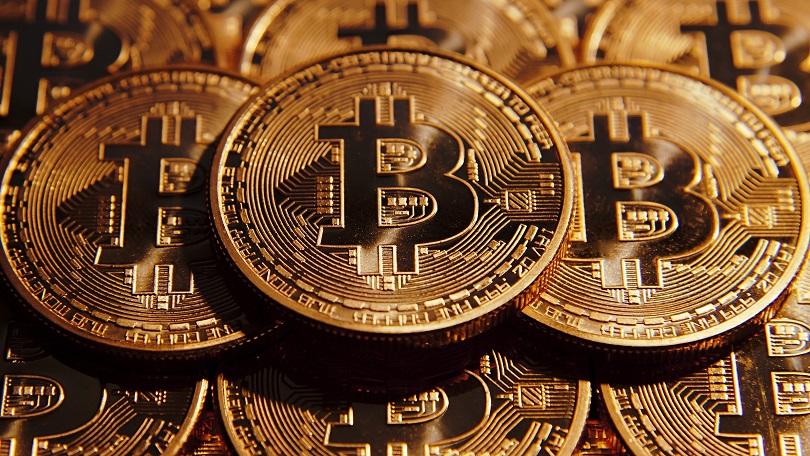Bitcoin recently soared past a value of nineteen thousand US dollars per coin followed by an abrupt downturn. It’s a currency, and it’s only eight years old. You’ve likely heard of this new “cryptocurrency” before, and if you’re a regular person like me, there is one burning question on your mind: What is bitcoin?
So, in an effort to quell my burning curiosity, I ventured deep into the internet to discover the origins and significance of this brand new currency. I found myself in the ‘frequently asked questions’ section of the bitcoin website. To my surprise, they did have a “what is bitcoin?” section. However, my search for answers was not over. The bitcoin folks had this to say about the currency: “Bitcoin is a consensus network that enables a new payment system and a completely digital money. It is the first decentralized peer-to-peer payment network that is powered by its users with no central authority or middlemen. From a user perspective, Bitcoin is pretty much like cash for the Internet. Bitcoin can also be seen as the most prominent triple entry bookkeeping system in existence.” So basically, if you’re a regular guy like me, you now have another question. What does that mean? “Pretty much like cash for the internet” is a confusing notion that I find oddly revolting. The nerds at bitcoin clearly don’t speak the same language as I do. The quest for answers continues.
I just had to google “idiot’s guide to bitcoin.” So, the folks at “Wired” explain bitcoin as well, whenever the nerds in your life fail to explain something adequately, it seems as though the ladies and gentlemen over at “Wired” have your back. It’s a digital currency that is held on computers around the globe. However, they stress that bitcoin isn’t a currency like the regular dollars, it’s a super currency, and a way of making payments, as well. “It lets you hold money, but it also lets you spend it and trade it and move it from place to place, almost as cheaply and easily as you’d send an email.” Another excellent thing about bitcoin is that it lets you pay for things without revealing your identity, which makes it excellent for deep web sites that are similar to the now defunct “Silk Road.” For those of you that don’t know, the “Silk Road” was essentially a service where you could order anything from acid to heroin on the internet and it would show up at your door like any online shopping experience. However, the bitcoin system is also nearly completely transparent in that all transactions are calculated and displayed online, which could theoretically drive a new confidence in the economy.
Bitcoin has been hailed as the harbinger of a new era in international finance. From a political viewpoint, bitcoin has the potential to change not just the world of global finance, but the world as we know it. It decentralizes currency from nation states and federal governments. The full story of bitcoin is a complicated one. It was “invented” in 2008 by someone using the pseudonym Satoshi Nakamoto. He was a programmer who built the bitcoin software and released it onto the internet. The software was designed to run across a large network of machines, often referred to as “bitcoin miners,” which anyone could theoretically operate if they had the desire to. Bitcoins themselves are basically just digital addresses and balances that are kept in an online ledger.
Why would you mine these bitcoins? Well, the bitcoin system is designed to pay out bitcoins to the bitcoin miners. As the system creates bitcoins, the miners log them and occasionally are paid out their own bitcoins by the system. Essentially, decentralized software manages to create these bitcoins and the miners are paid to catalogue them. The system pays these miners to keep stock of bitcoins at a rate of 25 bitcoins, six times per hour, globally. So, the entirety of planet earth’s bitcoin miners are paid at a rate of 150 bitcoins per hour. The system is designed to stop issuing bitcoins when they have “minted” twenty one million bitcoins, which, in the estimation of experts, will happen around the year 2140.
There are those warning prospective investors away from investing in bitcoin, primarily because it has no real-world backing. The regular stocks available to most are backed by, and fluctuate based on, a real-world company. Bitcoin differs significantly from a stock or a bond. Because so many people are buying bitcoin so fast, it is impossible to actually put a value on it. There are some that even call bitcoin more “short-term gambling” than “investing,” which seems to be accurate, given the significant delays that have been experienced by buyers and sellers of bitcoin. In some cases, buyers have to wait nearly a week before receiving their coins.
With all of this in mind, it seems that bitcoin had a few more skeletons in the closet than it seemed it had at first sight. Will bitcoin fail because it lacks the backing of physical capital and resources? Or will we see the global financial markets revolutionized by what was once a figment of an anonymous programmer’s imagination? Only time will tell.




